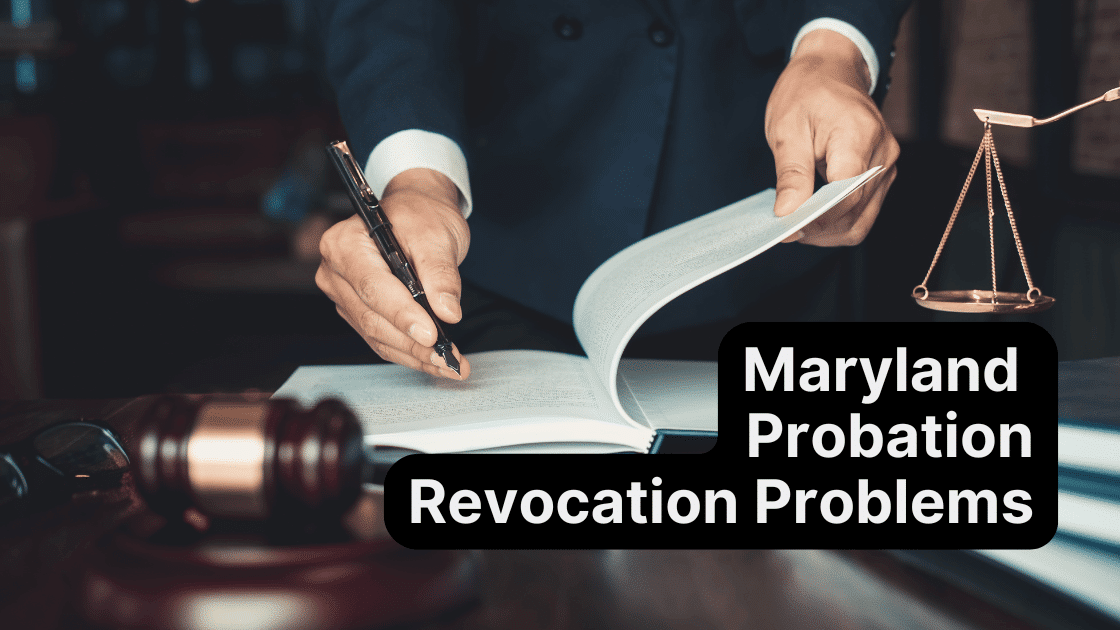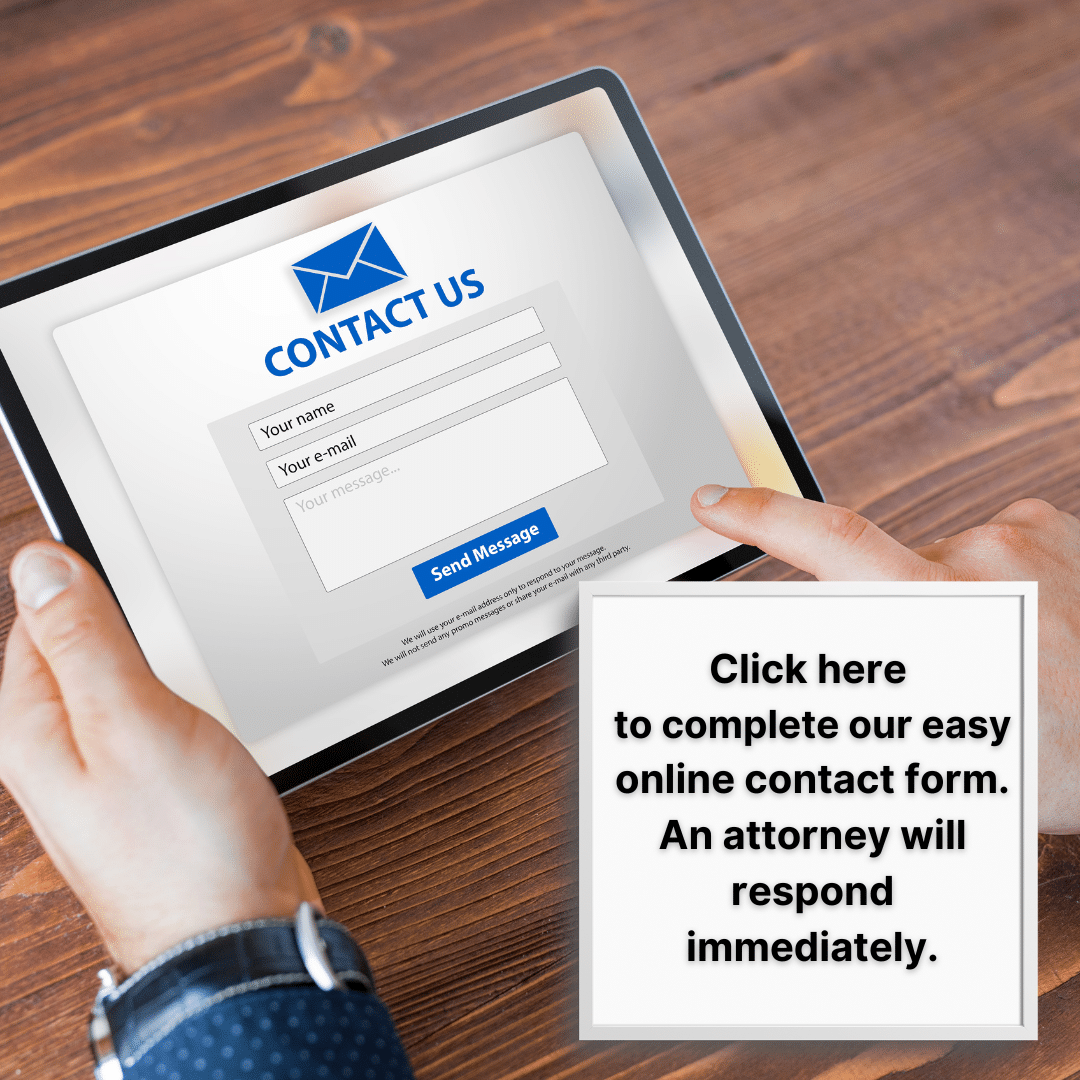Your Maryland probation revocation is something to take very seriously.
In the view of judges, probation itself is a gift. When people do not take probation seriously they get quite displeased and, barring some serious work by you and your lawyer, you face the real threat of jail or prison.
Table of Contents
What is the Procedure for a Probation Revocation?
When you or a loved one first plead guilty or are found guilty the judge has several punishment options in Maryland.
Depending on the crime, the judge can give you jail, probation, fine, or a combination of all three.
As we said above, judges consider probation a gift. If you do not do what you are supposed to do on probation most courts consider that offensive and will be looking for a reason not to send you to jail.
If you violate your probation either by not doing what the probation officers or the probation conditions say, or by getting a new charge, your probation officer will issue a probation violation report and ask your judge to bring you back to court.
This process could be via summons, where you will be voluntarily allowed to come to court via a notice in the mail. Or, if it is more serious, a warrant will be issued for your arrest. If that happens, you will need a lawyer for your bail hearing so that you can attempt to convince the judge to release you pending your probation revocation hearing.
You have a right to a lawyer at your revocation hearing. If you would a free consult from Seddiq Law call us 24/7 at 301.513.7832.
A probation revocation hearing is like a mini-trial. You must consult with your lawyer if you wish to contest the violation allegations. If you do, will be allowed to confront and cross-examine any witness and put on evidence on your behalf.
In some situations your failures on probation may be overwhelming. In those situations, it may be in your best interest to admit that you messed up and just put on mitigation evidence on why the judge should not put you in jail.
These are not easy decisions to make. We work best when clients hire us immediately after they have been notified of a revocation proceeding. We can work with the client to get them on the right track and try to avoid the worst possible scenario, jail time.
What are the Penalties for a Maryland Probation Revocation?
Maryland Code, Criminal Procedure § 6-223 sets all of the available penalties for a Maryland probation revocation.
After laws passed a few years ago, probation revocation sentences fall under two general types, technical and non-technical. Here is 6-223:
(a) A circuit court or the District Court may end the period of probation at any time.
(b) On receipt of written charges, filed under oath, that a probationer or defendant violated a condition of probation during the period of probation, the District Court may, during the period of probation or within 30 days after the violation, whichever is later, issue a warrant or notice requiring the probationer or defendant to be brought or appear before the judge issuing the warrant or notice:
(1) to answer the charge of violation of a condition of probation or of suspension of sentence; and
(2) to be present for the setting of a timely hearing date for that charge.
(c) Pending the hearing or determination of the charge, a circuit court or the District Court may remand the probationer or defendant to a correctional facility or release the probationer or defendant with or without bail.
(d) If, at the hearing, a circuit court or the District Court finds that the probationer or defendant has violated a condition of probation, the court may:
(1) revoke the probation granted or the suspension of sentence; and
(2)(i) subject to subsection (e) of this section, for a technical violation, impose a period of incarceration of:
- not more than 15 days for a first technical violation;
- not more than 30 days for a second technical violation; and
- not more than 45 days for a third technical violation; and
(ii) for a fourth or subsequent technical violation or a violation that is not a technical violation, impose any sentence that might have originally been imposed for the crime of which the probationer or defendant was convicted or pleaded nolo contendere.
(e)(1) There is a rebuttable presumption that the limits on the period of incarceration that may be imposed for a technical violation established under subsection (d)(2) of this section are applicable.
(2) The presumption may be rebutted if the court finds and states on the record, after consideration of the following factors, that adhering to the limits on the period of incarceration established under subsection (d)(2) of this section would create a risk to public safety, a victim, or a witness:
(i) the nature of the probation violation;
(ii) the facts and circumstances of the crime for which the probationer or defendant was convicted; and
(iii) the probationer’s or defendant’s history.
(3) On finding that adhering to the limits would create a risk to public safety, a victim, or a witness under paragraph (2) of this subsection, the court may:
(i) direct imposition of a longer period of incarceration than provided under subsection (d)(2) of this section, but no more than the time remaining on the original sentence; or
(ii) commit the probationer or defendant to the Maryland Department of Health for treatment under § 8-507 of the Health–General Article.
(4) A finding under paragraph (2) of this subsection or an action under paragraph (3) of this subsection is subject to appeal under Title 12, Subtitle 3 or Subtitle 4 of the Courts Article.
What does this mean? Work with a skilled Maryland probation revocation attorney to either get your revocation dismissed or convince the judge it is a technical violation. This will greatly reduce your exposure to jail time in your revo case.
Probation Revocation Conclusion (Free Consultation)
Maryland has a reasonably forgiving criminal justice system for first offenders. However, should you get in trouble while on probation, you are looking at significant punishment that includes jail or prison time.
For a free consultation, please fill out this form here, and an attorney will contact you within minutes. You can also call us at 301.513.7832. We answer the calls 24/7.



